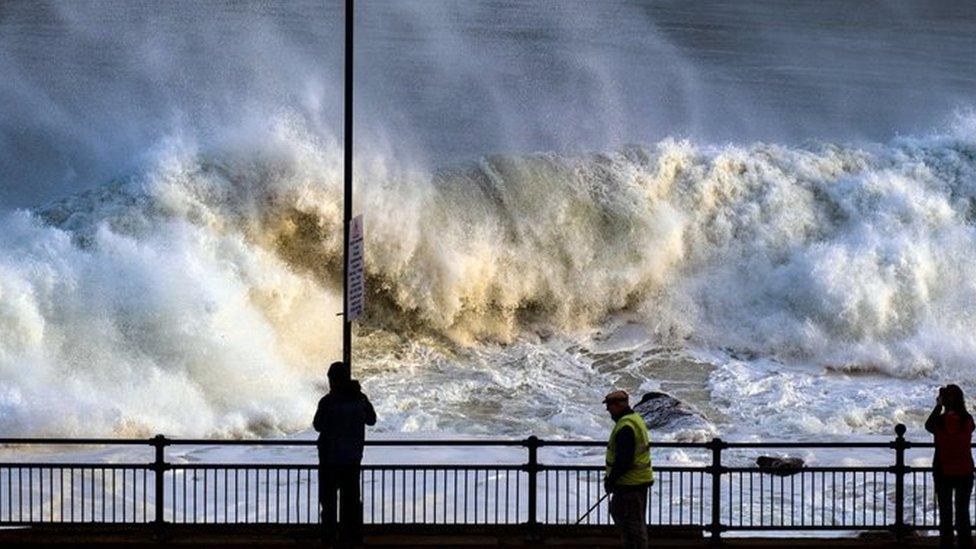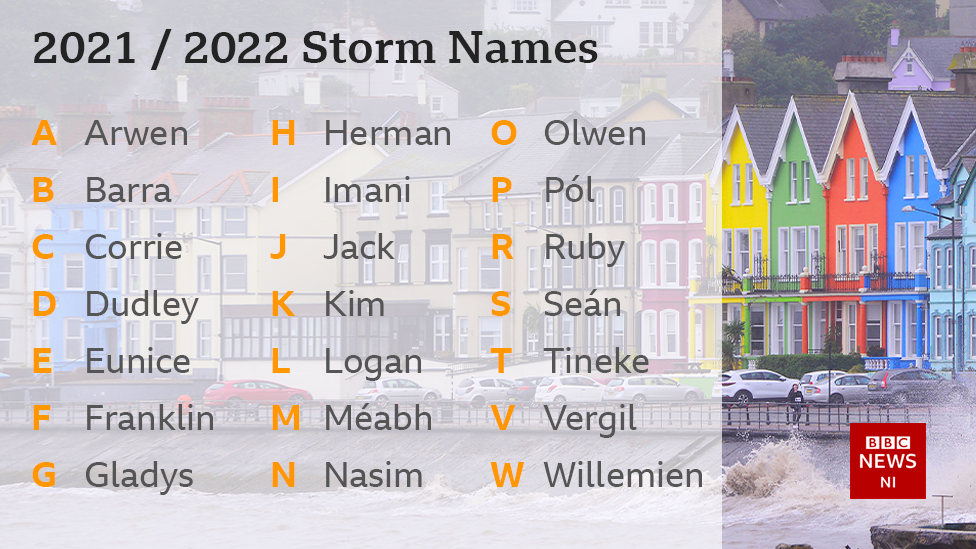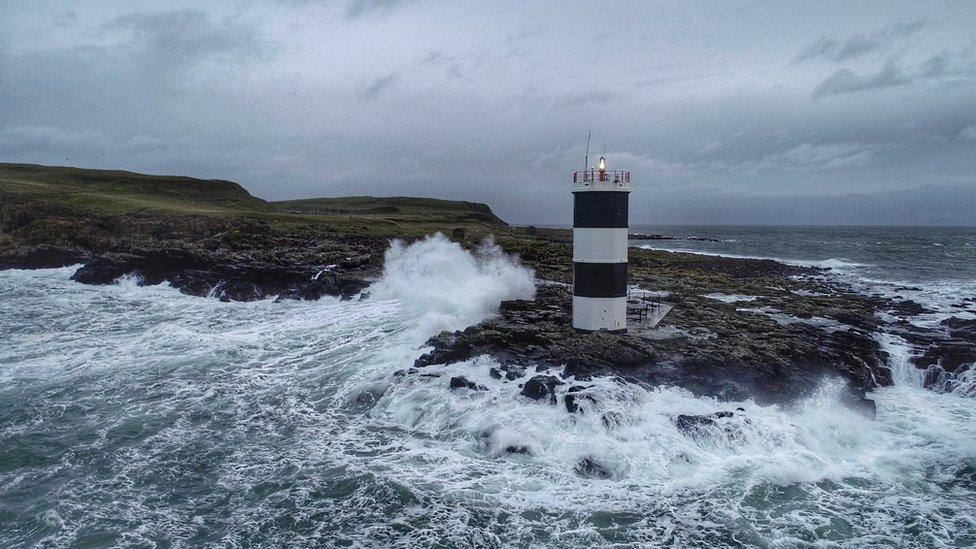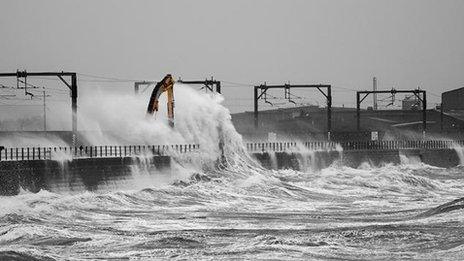Storm names: Barra, Méabh, and Pól among names set for 2021-22
- Published

Storm Aiden brought very strong winds and rain to Portstewart promenade in October 2020
Barra, Gladys, Méabh, Pól and Vergil are among the names that will be used for storms that come our way in the next 12 months.
This is the seventh year that storms have been given names.
The initiative - between the British, Irish and Dutch weather services - aims to raise awareness of potentially damaging, disruptive, and life-threatening severe weather.
Five storms have been named in the last 12 months.
More than 10,000 submissions were made as part of the process, with people suggesting the names of their friends, family and pets.
Storms are named when they cause a medium to high impact.
While many of the names are chosen for more light-hearted reasons, naming criteria also looks at whether the name has already been used by another storm-naming group and if there has been a serious impact from a storm with the same name previously.

Will Lang, head of the National Severe Weather Warning Service at the Met Office, said it was "aware of some of the severe weather that has been witnessed across Europe" and would use "use any tool at our disposal to ensure the public is informed of potential risks".
Evelyn Cusack, head of forecasting at Met Éireann, said it wanted to provide a "clear and consistent message to the public and encouraging people to take action to prevent harm to themselves or to their properties at times of severe weather".
Storm Aiden was the first to be named in the past year on 30 October 2020.
That system sparked yellow weather warnings being issued across the island of Ireland by the Met Office and Met Éireann.
Twelve counties in the Republic of Ireland were also issued with "status orange" warnings - the second highest level of warning that can be issued.
Storm Bella followed on 26 December bringing strong winds and snow to parts of Northern Ireland.
Hundreds of properties were also left without electricity in the Republic of Ireland as the storm cleared to the north-east.

Storm Bella caused strong winds and crashing waves on Rathlin Island in December 2020
Heavy and persistent rain then brought flooding when Storm Christoph hit in January.
Between 20mm and 30mm of rain fell quite widely, while about 50mm of rain fell over high ground in a short amount of time.
Storm Darcy in February brought bitterly cold conditions and snow for some across Ireland relatively with most disruption for the Netherlands and parts of Britain because of heavy snow.
The final storm was Evert which brought unusually strong winds to southern and south-west England, external in late July.
The letters Q, U, X, Y and Z are not used to fit with international storm-naming conventions.
Other European countries to name impactful storms include France, Spain and Portugal in south-west Europe, and Sweden, Norway and Denmark in northern Europe.
Storms named by other countries keep their name if they reach British, Irish or Dutch shores.
Related topics
- Published1 September 2020

- Attribution
- Published14 June 2018
